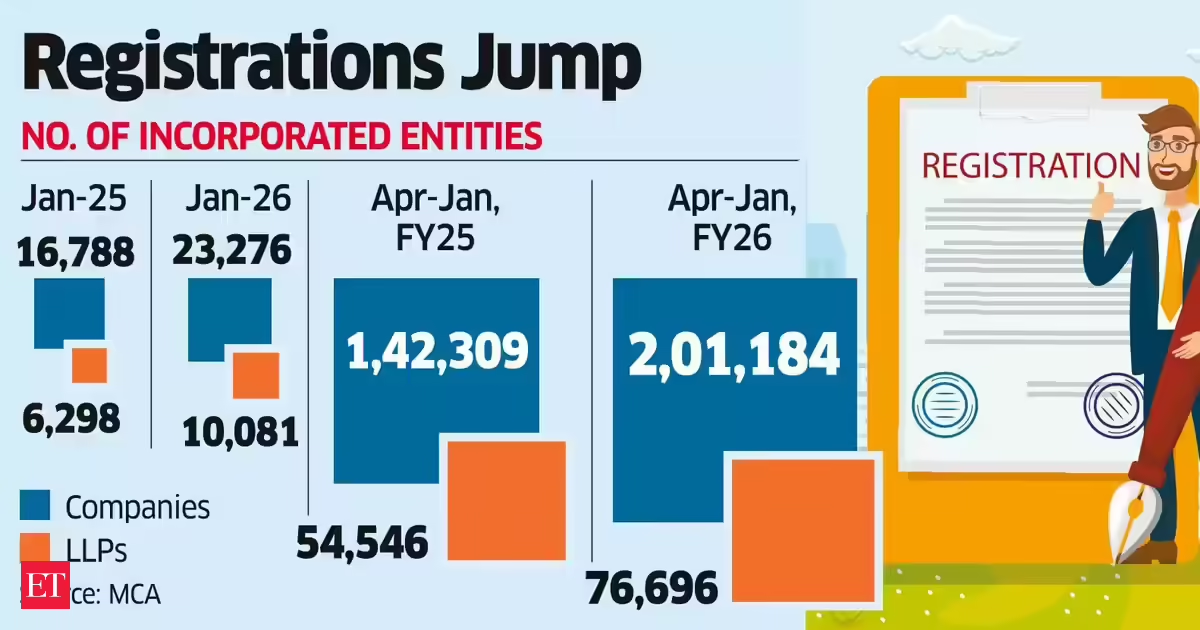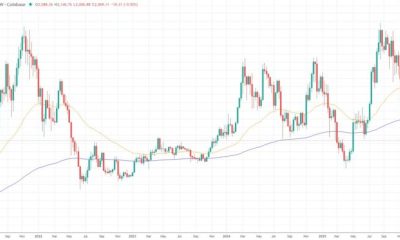Entertainment
Bad Bunny’s Halftime Performance Left the Alternative MAGA Show in the Dust


As the Seattle Seahawks and New England Patriots took the national spotlight last night, as did two different halftime shows. This year, Bad Bunny was the headliner behind the NFL’s annual extravaganza while elsewhere, Turning Point USA’s so-dubbed All-American Halftime Show got underway with a slew of entertainers, including Kid Rock, Brantley Gilbert, Lee Brice and Gabby Barrett. We know that the big game ended with a score of 29 to 13, with the Seahawks taking the sought-after trophy back to the Pacific Northwest, but how did the numbers stack up between the dueling artists?
With a singular stage that featured a catwalk and a spread-out audience surrounding it, the Turning Point USA show saw its performers dressed in blue suits, cowboy hats and the like, while a nearly unrecognizable Kid Rock closed it out. Meanwhile, on NBC, Bad Bunny transported audiences to Puerto Rico in a performance that captured the many cultures that make up the United States. Joining him at one point in a duet was Lady Gaga, while a happy couple got married in the middle of Super Bowl halftime madness, all to get his message of love across.
With the numbers finally beginning to roll in, we can see a clear-cut case of whom the halftime show victor was. An early report revealed that the off-shoot, which ended later than its primetime network equivalent, snagged somewhere around 5 million viewers on Turning Point USA’s YouTube during its live release. In the time since, the figures have shot up to 6.1 million, with folks turning to the online platform to see what they missed during the big game. Concurrently, Bad Bunny’s halftime performance was groundbreaking in more ways than one, as the Grammy recipient raked in a staggering 128, which falls just short of the previous record held by last year’s entertainer, Kendrick Lamar. Additionally, Bad Bunny’s performance has also become the most-watched halftime show in Spanish-language television history, raking in 4.8 million on Telemundo alone.
Who Else Performed at Super Bowl LX?
On top of the feuding halftime shows, audiences were treated to a handful of other musical delicacies, courtesy of some of the biggest names in the industry. Stepping out with an acoustic guitar and a well-tailored suit, multi-Grammy and Emmy-winning musician Brandi Carlile tuned up to play a rendition of “America the Beautiful,” while Coco Jones channeled Whitney Houston’s iconic Super Bowl XXV look while singing “Lift Every Voice and Sing.” Additionally, Charlie Puth took center stage to deliver his rendition of the National Anthem, and Green Day opened the event with numerous hits from over their decades-long career. While some may have been waiting for the California legends to toss in some political overtones, they wrapped up the show without a peep.
You can watch Bad Bunny’s full Super Bowl performance above.
Entertainment
Miss Lymph Founder Sabrina Sweet Shares the Ultimate Detox Guide: From Massage Techniques to Energy Boundaries

Detox your life! Sabrina Sweet, better known as Miss Lymph, has become the go-to for Hollywood It-girls looking to de-puff and de-stress. Now, the California based lymphatic drainage expert is sharing her tips for feeling lighter from the inside out with ET.
Sweet’s approach blends traditional manual lymphatic drainage with Brazilian techniques, myofascial release, and hands-on muscle manipulation, all designed to help you let go from head to toe.
“The lymphatic system and nervous system are deeply connected. When we slow the body down, use gentle, intentional touch, and bring the system out of fight or flight, the body finally feels safe to relax,” she shares.
“A lot of stored stress and emotion lives in stagnation. When flow is restored, release happens naturally without forcing it,” the founder adds.
As for how her particular technique works: “I’m very intentional and purposeful. It’s a less-is-more style that’s slow, rhythmic, and deeply calming.”
And what it’s never? “Nothing is rushed or aggressive. … Harder is not better, and just using tools or machines is not lymphatic drainage,” the professional dancer explains.
Instead, Sweet focuses less on before-and-after photos and more on helping the body get rid of stored tension, stress, and negative emotion.
“There are physical results, of course, but beyond that it’s a feeling of clarity and softness. … People leave feeling calmer, more grounded, and more connected to their bodies. That’s where the real transformation happens.”
Between monthly appointments, the podcast host recommends adding feel-good habits into your routine for the best results.
“Drinking clean, high-quality water, eating nourishing whole foods, and doing light movement like yoga, stretching, dancing, or swimming is huge,” she notes.
For wellness enthusiasts, she also suggests regularly using a sauna, gua sha, and vibration plate, or dry brushing and rebounding on a mini trampoline.
But according to the CEO, true detoxification involves more than finding ways to reduce water retention.
“Try to work through any emotional blocks or unresolved trauma so that it doesn’t create stagnation in the body. … Cut out toxic partners, friendships, or jobs, and overall negativity. … Where you place your attention matters, so choose wisely. It all starts with you.”
RELATED CONTENT:
Entertainment
Gerard Butler’s R-Rated Action Thriller On Netflix Is A Brutal Lockdown Showdown

By Robert Scucci
| Published

Imagine getting yourself into so much trouble that you decide the best thing to do for your personal safety is to stage a fight with a cop so they arrest you. This solution, as seen in 2021’s Copshop, may seem simple enough because there’s no safer place than a holding cell hidden behind a bulletproof door. The problem is that one of the men who has a bounty on you knows exactly where you’re hiding, so he stages a drunk driving accident with the intention of getting booked and transported to the cell across from the one you’re currently hiding out in until things blow over.
Even worse, there’s yet another psychopath who’s after both of you and has absolutely no qualms about mowing down an entire police station with machine guns for the love of the game. He’s also friendly with a couple of corrupt officers on the inside, meaning you’re all pretty much dead meat because the only person on duty at this late hour is a rookie cop who’s not incompetent by any stretch of the imagination, but severely outnumbered.

Here’s the thing about Copshop, as well as a bunch of other neo noir crime thrillers that fall in this wheelhouse. They’re billed as action films, mystery films, and suspense films, but they’re never called comedies despite the fact that they’re way more fun than they have any right to be. Watching Copshop is such a treat because it plays things straight, while also maintaining a wicked sense of humor that keeps the entire experience infinitely rewatchable.
Location, Location, Location
Copshop first introduces us to a fixer on the run named Teddy Murretto (Frank Grillo). Teddy takes on a job that gets him in trouble with some very dangerous people in high places, resulting in his desperate attempt to lay low until things blow over. His plan is simple. Punch rookie cop Val Young (Alexis Louder) in the face in front of witnesses so he gets dragged to the precinct and processed. He does exactly that and thinks he’s safe for a while, but matters get complicated when one of the hitmen hired to ice him, Bob Viddick (Gerard Butler), catches wise to this plan and tracks him down.

Bob Viddick intentionally gets himself arrested by pretending to drive drunk and crashing into a routine traffic stop in the area, knowing he’ll be brought to the same jail. Unaware of the larger scheme at play, Val throws the hitman into the holding cell across from Teddy, and the two immediately start exchanging threatening words once they’re left alone.
Meanwhile, Officer Huber (Ryan O’Nan) starts snooping around the evidence locker because he’s been skimming drugs from inventory, which has rightfully made Sergeant Duane Mitchell (Chad Coleman) suspicious of his extracurricular activities.

To make matters infinitely worse, there’s yet another dangerous man named Tony Lamb (Toby Huss) who knows exactly where both Murretto and Viddick are located, and he just so happens to be working with Officer Huber. Tony Lamb is a picture-perfect psychopath who laughs his way through the precinct while pumping the place full of lead. A rival hitman to Viddick, the only thing Lamb cares about is stealing the job out from under him and cashing in on the bounty. As chaos unfolds inside the police station, Val realizes she’s alone in her attempts to neutralize the situation and will have to take matters into her own hands.
Absolute Bedlam Behind Bulletproof Glass
The story told in Copshop is a fairly simple one, but it’s executed flawlessly. The dynamic between a rookie cop with a home team advantage and the people who have infiltrated her station to play their war games makes for some supremely tense moments once everybody’s motives become clear. Val, who clearly has combat experience despite being relatively new to the force, isn’t a damsel in distress, but she’s undeniably outnumbered.

Tony Lamb unloads ammo on anybody who crosses his path, seemingly on impulse, and you can tell he’s the scariest guy in the room based entirely on how much fun he’s having. Viddick and Murretto are a bit more complicated because they’re both trying to win Val’s trust in order to gain the upper hand. The problem for them is that they got themselves arrested under false pretenses, meaning they’re professional liars by default.
Good, Violent Fun
Copshop, while not necessarily offering anything new to this locked down brand of neo noir crime thrillers, succeeds because everybody brings their A game. There’s always humor behind the menace, especially from Toby Huss, who’s having just a little too much fun portraying Tony Lamb with sadistic glee. The entire premise is a spectacle because there’s no better place to stage a shootout than a building with a literal armory on site, and Copshop takes full advantage of its setting.


Part of the fun of watching Copshop comes from knowing that every single antagonist is a terrible person. Val is forced to decide which of these men she can work with if she wants to make it out of the station alive, and the unfortunate reality is that she probably shouldn’t trust any of them. If you find yourself wondering how this is all going to play out and could use a bit of levity to carry you through an otherwise tense, action-packed thriller, you can stream Copshop on Netflix as of this writing.
Entertainment
House Republicans call to investigate Bad Bunny Super Bowl halftime show over 'widespread twerking, grinding, pelvic thrusts'
:max_bytes(150000):strip_icc():format(jpeg)/Bad-Bunny-Super-Bowl-LX-021026-2edda545cbf6428285b28c0f279e1528.jpg)
Rep. Mark Alford said the fallout “could be much worse than the Janet Jackson wardrobe malfunction.”
Entertainment
Hollywood Makes It Rain With Super Soaker Snaps … Happy Umbrella Day!

Hollywood’s usually easy-breezy, sun’s out, buns out … and not a rain drop in sight, but these rainy snaps have come just in time for National Umbrella Day!
Making her way into “Wicked” on Broadway, Nina Dobrev stayed dry in the Big Apple with a big ol’ umbrella, while Ashly Schwan hit a rooftop to show off her red thong!
Simone Biles may be an Olympic champion, but on game days, she’s full-on WAG — umbrella and all!
Rain rain, go away, can you track down the words in the Word Search above?!
Stay safe, and don’t worry about the rain … We’ve got you covered under our umbrella! Check out the gallery!
Entertainment
‘TMZ After Dark’ Gets a ‘Vanderpump’ Makeover From Venus & Natalie


TMZ.com
The new cast of “Vanderpump Rules” completely took over “TMZ After Dark,” led by breakout stars Venus and Natalie, who made passengers feel like they were on an actual episode of the show!
The duo took us back to the early, raunchy days of ‘Vanderpump.’ And with DJ Nyla DJing the bus, the energy was high from the start as Venus and Natalie jumped right in — dancing, hyping up the crowd, and setting the vibe for the night.
The first stop was the Rainbow Bar & Grill, where party girl Natalie was already familiar with the manager and staff, and the pair handed out the bar’s signature “Woohoo” shots, cheers-ing to the wild night ahead.
The night continued at Saddle Ranch, where the manager welcomed the group with unlimited chicken (original and buffalo) and famous pink gummy shots, followed by Venus riding the mechanical bull and nearly making it through the full ride before being thrown off in an epic fall.
The grand finale was SUR, Lisa Vanderpump’s iconic restaurant, where manager Guillermo greeted the bus and led everyone inside. Venus and Natalie went behind the bar to serve passengers their Big Pinky shots, and with the entire Season 12 cast in attendance — including Chris and Marcus — guests met every breakout star.
Venus and Natalie partied hard with the bus all night, dancing, celebrating, and making out multiple times, keeping the energy wild until the very end.
What are you waiting for … grab your tickets to the hottest party in town!!!
Entertainment
Person Of Interest Detained for Questioning in Nancy Guthrie Abduction Case

Nancy Guthrie
Person of Interest Detained for Questioning
… Not A Family Member
Published
TMZ has confirmed that a person of interest has been detained by The Pima County Sherriff’s Office.
A law enforcement source involved in the investigation tells us it is not a member of the Guthrie family.
Story developing …
Entertainment
Bad Bunny’s Super Bowl Halftime Show Draws Over 128 Million Viewers

Bad Bunny
128 Million Viewers
… Tune Into Super Bowl Halftime Show!!!
Published
|
Updated
The chaos and controversy surrounding Bad Bunny‘s Super Bowl halftime performance did NOT hurt the viewership numbers — 128.2 million people tuned in to watch!
The numbers for the “DtMF” singer were announced by NBC on Tuesday, confirming that fans had their TVs stuck on the Super Bowl during halftime to watch Bad Bunny do his thing.
The performance didn’t lack star power … with special guests like Cardi B, Lady Gaga, and Ricky Martin as part of the show.
Despite the strong numbers, it wasn’t the most-watched halftime show ever. By comparison, last year’s halftime performance with Kendrick Lamar drew a historic 133.5 million viewers across TV and digital platforms.
Of course, Bad Bunny’s show had some competition this time around … with Turning Point putting on an alternate program starring Kid Rock and others, which had over 5.1 million people watching live.
Bad Bunny faced heavy criticism before he even hit the stage, with many knocking the NFL for picking a headliner who primarily performed in Spanish, not English.
The talk didn’t die down after the show … even President Donald Trump expressed anger over the performance … calling it “one of the worst, EVER!”
“It makes no sense, is an affront to the Greatness of America, and doesn’t represent our standards of Success, Creativity, or Excellence,” Trump said.
Instagram/@ricky_martin

“Nobody understands a word this guy is saying, and the dancing is disgusting, especially for young children that are watching from throughout the U.S.A., and all over the World.”
But when it comes to the numbers, the performance tells a different story.
Entertainment
Young and the Restless TWIST: Mariah & Patty’s Psych Ward Connection Revealed in Stunning Turn?

Young and the Restless has Crazy Patty Williams (Stacy Haiduk) heading back to Y&R soon, and I suspect she may play a part in Mariah Copeland‘s (Camryn Grimes) mental health storyline that’s going to be ongoing for a while.
We’re going to talk about how Patty might cross paths with Mariah in Fairview Psychiatric Hospital. This may all have a big Ian Ward (Ray Wise) twist coming.
Mariah Copeland Reaches Rock Bottom on Young and the Restless
Right now, Mariah is pretty much at rock bottom, and everything’s about to catch up with her. She pushed away her wife, Tessa Porter (Cait Fairbanks), who’s filing for divorce and is already moving on with Daniel Romalotti (Michael Graziadei). Plus, Mariah abandoned their daughter, Aria Porter Copeland, and has gotten freakishly obsessed with Dominic Chancellor (Ethan Ray Clark) and has kidnapped him.
Abby Newman (Melissa Ordway) and Devon Hamilton (Bryton James) are searching for her and Dominic. Mariah’s planning to leave the country with the kid. Dominic is starting to ask a lot of questions. And I think pretty soon he’s going to get scared.
We can see that Mariah has had a complete break with reality. She’s hallucinating Ian Ward. And she believes Dominic is actually her son and should have been ever since she gave birth to him when she was the surrogate who carried him for Abby and Devon, who are his biological parents.
Christine Williams Returns to Defend Mariah Against Kidnapping Charges on Y&R
Right now, Mariah is headed to Mexico. But Detective James Burrow (Matt Cohen) and Abby, Devon, and Sharon Newman (Sharon Case) are planning to hop in the jet and intervene to catch her before Mariah gets too much further away with Dominic.
Now, we also know that Christine Williams (Lauralee Bell) is back soon to represent somebody who’s in legal trouble. It seems like she may be the one who’s trying to keep Mariah out of a prison sentence of life behind bars. It won’t be too long—should be by the end of Sweeps—that Detective Burrow slaps cuffs on Mariah and they get Dominic away from her and back to his parents.
We know Mariah is going to face serious consequences. But I mean, she’s not a criminal mastermind. She’s not a repeat offender. She is a deeply unhinged woman in the middle of a deep mental health crisis. Clearly, what she needs is long-term professional help as an inpatient at a secure psychiatric hospital, not prison.
Stacy Haiduk Returns to Young and the Restless as Patty Williams in March
I suspect Christine negotiates some sort of long-term stay for Mariah in Fairview Psychiatric instead of going to the state prison. I would expect an insanity plea. And I think Devon and Abby would agree to that. Because they were just saying this week that this is not the sane Mariah they know and love.
Devon and Abby are going to want Mariah to get the psychiatric help she needs. And this could be where “Crazy” Patty Williams comes into the story. We know Stacy Haiduk is back as Patty. She’s the younger sister of former police chief Paul Williams (Doug Davidson).
Her first air date as Patty is set for March after a 10-year absence from Y&R. Stacy’s last appearance was 2016. Last we heard, Patty is in a psychiatric hospital for her various criminal deeds. I suspect we could see Mariah sent to the same psych hospital as Patty, most likely Fairview. Because those are the sets they have.
If you’re a Days of Our Lives viewer, you will know Stacy Haiduk, who plays Kristen DiMera and her doppelganger, Susan Banks, over on the Peacock soap. What’s interesting is Stacy plays those roles and they were once played by Eileen Davidson, who of course plays Ashley Abbott (Eileen Davidson) on Y&R. Stacy was her recast. And now we’ve got her returning as Patty.


The Dark History Between Sharon Newman and Patty Williams on Y&R
The timing of it coming right after February Sweeps has me thinking that Mariah is going to wind up in the same psych ward as Patty. That means things could get really wild. Because both Mariah and Patty have a history with Ian Ward.
Mariah’s mom, Sharon Newman, has a dark and complicated history with Patty. If you don’t remember, back when Sharon was with Dylan McAvoy (Steve Burton), she suffered a miscarriage and then she had a breakdown. She was in Fairview and she was gaslit by her psychiatrist into thinking she was still pregnant.
This shrink at Fairview was tormenting Sharon because that woman hated Nick Newman (Joshua Morrow). Because of a high school incident. In the end, it was actually Patty who alerted Nick to the fact that Christian Newman (Alex Wilson) was alive and that Sharon was keeping his son from him. Patty had a major storyline last time that tied into this same group of people. Paul’s sister Patty was also once married to Jack Abbott (Peter Bergman). But he did her dirty. Over the years, Patty had several mental health issues and nervous breakdowns.
Is Ian Ward Alive or a Hallucination for Mariah?
We know how much Josh Griffith loves mental health storylines. He’s even done multiple ones at the same time. So, that’s kind of what I’m expecting with Patty’s return. Of course, the viewers know that Ian is alive. After Victor Newman (Eric Braeden) shot him, he was declared dead at the ranch.
But Ian came back to life in the ambulance and he hasn’t been seen again in the flesh. Mariah has been seeing him for quite a while. But that’s been a hallucination. But not only could we be getting Patty back, we also may be getting Ian back alive and in person, not just a figment of Mariah’s tormented mind.
If Ian is alive, we may find out that he was already in touch with Patty or he may get in touch with her soon. If you were watching back in the mid-2010s, you may remember that Ian was presumed dead back then in a fire at Newman Tower that he had started. But Patty saved Ian’s life and they wound up running off together.
Patty Williams and Mariah Copeland: A Wild New Young and the Restless fans Mental Health Storyline
At some point, Ian bailed on Patty. It kind of feels out of nowhere that they’re bringing back Stacy Haiduk to Young and the Restless. I love the actress. But just storyline-wise it’s like, okay, why? But if they are going to carry over Mariah’s storyline beyond the kidnapping and keep her around, especially with hallucination Ian lurking, I feel like Patty has logically got to be part of that storyline.
If you remember, they’ve had Ian in a priest collar the whole time he’s been visiting Mariah at the Boston clinic and while on the run while she’s imagining him. It would be really wild if Ian is alive and really masquerading as a priest to visit patients at Fairview, including Patty, who really likes him.
Ian Uses Patty to get to Mariah?
Ian might even plan to use Patty as some sort of conduit to get his hands on Mariah again. Because Ian’s alive and nobody knows it but the viewers, I fully expect him to slither back and start doing bad things. Because nobody’s looking for him. Victor’s certain he’s dead and so is everybody else.
What would be really terrible is if the doctors at the psych clinic are finally able to convince Mariah that Ian’s a hallucination. But then it turns out she’s seeing the real Ian. Mariah might see him and assume, “Okay, I’m imagining Ian.” That would be wild.
If Mariah tells Sharon, she would probably also assume Mariah is imagining things. Because Sharon is also convinced that Ian’s dead and gone. I know that if Patty is in the same psych hospital where Mariah is sent after she’s caught, that would horrify Sharon. Because of their twisted history.
The bottom line is Patty would be a horrible influence on Mariah if they wind up in a psych ward together. With Stacy Haiduk’s air date in March, that gives time for Mariah to be caught with Dominic by the end of February Sweeps and then for Christine to make a plea deal for a psych hospital instead of prison. Then Mariah is sent to the psych ward and—bam—there’s Patty. We have a whole new storyline of mental health stuff that goes off the rails.
Entertainment
Jill Zarin Fired From New ‘RHONY’ Show

Bad Bunny’s Super Bowl LX halftime performance sparked intense backlash both leading up to and following his performance. One of the harshest critiques came from former “Real Housewives of New York City” starJill Zarin. Now, she’s reportedly been fired from the upcoming E! show, “The Golden Life.”
Article continues below advertisement
The Production Company Behind ‘The Golden Life’ Says Jill Zarin Is Fired

It seems Zarin’s tenure with “The Golden Life” is ending before it began, as Variety reports she has been fired from the show. They received a statement from the production company behind the show, Blink49 Studios, confirming the news. The statement began, “In light of recent public comments made by Jill Zarin, Blink49 Studios has decided not to move forward with her involvement in ‘The Golden Life.’”
They added, “We remain committed to delivering the series in line with our company standards and values.”
Article continues below advertisement
The Former RHONY Star Had Much To Say About The Super Bowl Halftime Show

Like many people all over the world, Zarin was tuned in for the Super Bowl Halftime Show. However, the former “Real Housewives of New York City” star didn’t love what she saw on the stage, which also featured Lady Gaga and Ricky Martin. She started in the clip, “So we all agree, I said it before, that it was the worst halftime show ever, and it’s 250 years that we’re celebrating right now in the United States, and I just don’t think it was appropriate to have it in Spanish.”
Zarin then said, “And quite frankly, I didn’t want to see him grabbing his G-area. I think it was totally inappropriate. You’ve got all these kids, young kids, watching the Super Bowl, and he doesn’t have to be grabbing himself every five seconds. Is he so insecure? Seriously.”
Article continues below advertisement
She added, “For me, it looked like a political statement because there were literally no white people in the entire thing. I think it was a political statement, and I’m not taking a side one way or another. I just do. I think it was an ICE thing. I just think the NFL sold out, and it’s very sad because this is 75 years, and you know, shame. Shame.”
The former “RHONY” star also accused Gaga of having had plastic surgery ahead of the performance, saying she didn’t recognize the singer. According to her, “And Lady Gaga got a facelift. I didn’t recognize her. I literally had to Google her face to see who it was. We all couldn’t agree who it was, so that was kind of fun in the middle of halftime. At least it gave me something to do because it was so hard to watch.”
Article continues below advertisement
Fans Are Reacting To The News Of Her Firing

Upon hearing the news of Zarin’s firing, fans of “The Real Housewives of New York City” took to social media to react. One person wrote on X, “Jill Zarin getting fired has been long overdue. She is a raging zionist and her behavior in the early seasons of RHONY was despicable, and the things she said were completely racist and Islamophobic. Ramona next, please.”
Someone else said, “Jill Zarin getting herself fired AGAIN is chef’s kiss….” A different X user wrote, “Jill Zarin finally got back on TV after so many years of begging, only to get fired a few days later for being a racist cunt! Lmao.”
Article continues below advertisement
More users chimed in, with one saying, “Jill Zarin getting fired from that show before it even starts is so funny cause all she had to do was shut up, nobody even asked for her opinion.” Naturally, there was also support from the reality star, with at least one person saying firing her was the wrong move. They said, “Haven’t they learned from being woke with RHONY? Jill’s opinions are widely held!!”
Andy Cohen Previously Gave His Thoughts On What The Former ‘RHONY’ Star Said

Andy Cohen, Zarin’s former Bravo boss, has weighed in on Zarin twice in recent weeks. First, according to Deadline, he reacted to the news of “The Golden Life.” He said, “I’m so excited for them. I texted the ladies yesterday. I think it’s gonna be a great show. I could never root against these women. I absolutely love them. I love them together. So does America. I’m gonna speak for America, and I think it’s gonna be great, and I can’t wait to watch, and I’m happy for them.”
Regarding the second time, he weighed in on what she said about Bad Bunny’s Super Bowl Halftime performance. The Bravo bigwig said in a clip from SiriusXM’s “Radio Andy,” “And in terms of Jill, just… I don’t know. You know, call E!,” referring to the new show.
Article continues below advertisement
His cohost then noted that former “Real Housewives of Beverly Hills” star Taylor Armstrong also shared hateful comments. Cohen then said, “Two people who are not employed by Bravo anymore, so just…”
It’s Unclear Who Will Relace The Former Star
The E! network announced “The Golden Life” on February 3, with the cast set to feature Zarin, Luann de Lesseps, Sonja Morgan, Ramona Singer, and Kelly Bensimon. The show will take place in Palm Beach. Now, following Zarin’s reported exit, it’s unclear which of the former “Real Housewives of New York City” ladies the network and production company will cast.
Based on reports, the cast will film the new series in the spring, with hopes of it airing before the end of 2026.
Entertainment
“Big Brother” contestant Libra Thompson reveals she had a stroke caused by hole in her heart
:max_bytes(150000):strip_icc():format(jpeg)/Libra-Thompson-021026-5d7acc5c58ca4a22a62694dfc422845b.jpg)
She is also seeking financial assistance: “I really hate asking, but pride aside, donate days would help me out tremendously!”
-

 Tech7 days ago
Tech7 days agoWikipedia volunteers spent years cataloging AI tells. Now there’s a plugin to avoid them.
-

 Politics2 days ago
Politics2 days agoWhy Israel is blocking foreign journalists from entering
-

 NewsBeat1 day ago
NewsBeat1 day agoMia Brookes misses out on Winter Olympics medal in snowboard big air
-

 Sports4 days ago
Sports4 days agoJD Vance booed as Team USA enters Winter Olympics opening ceremony
-

 Tech4 days ago
Tech4 days agoFirst multi-coronavirus vaccine enters human testing, built on UW Medicine technology
-

 Business2 days ago
Business2 days agoLLP registrations cross 10,000 mark for first time in Jan
-

 NewsBeat2 days ago
NewsBeat2 days agoWinter Olympics 2026: Team GB’s Mia Brookes through to snowboard big air final, and curling pair beat Italy
-

 Sports2 days ago
Sports2 days agoBenjamin Karl strips clothes celebrating snowboard gold medal at Olympics
-
Sports4 days ago
Former Viking Enters Hall of Fame
-

 Politics2 days ago
Politics2 days agoThe Health Dangers Of Browning Your Food
-
Sports5 days ago
New and Huge Defender Enter Vikings’ Mock Draft Orbit
-

 Business3 days ago
Business3 days agoJulius Baer CEO calls for Swiss public register of rogue bankers to protect reputation
-

 NewsBeat5 days ago
NewsBeat5 days agoSavannah Guthrie’s mother’s blood was found on porch of home, police confirm as search enters sixth day: Live
-

 Business5 days ago
Business5 days agoQuiz enters administration for third time
-

 Crypto World11 hours ago
Crypto World11 hours agoBlockchain.com wins UK registration nearly four years after abandoning FCA process
-

 Crypto World20 hours ago
Crypto World20 hours agoU.S. BTC ETFs register back-to-back inflows for first time in a month
-

 NewsBeat2 days ago
NewsBeat2 days agoResidents say city high street with ‘boarded up’ shops ‘could be better’
-
Sports1 day ago
Kirk Cousins Officially Enters the Vikings’ Offseason Puzzle
-

 Crypto World20 hours ago
Crypto World20 hours agoEthereum Enters Capitulation Zone as MVRV Turns Negative: Bottom Near?
-

 NewsBeat6 days ago
NewsBeat6 days agoStill time to enter Bolton News’ Best Hairdresser 2026 competition














